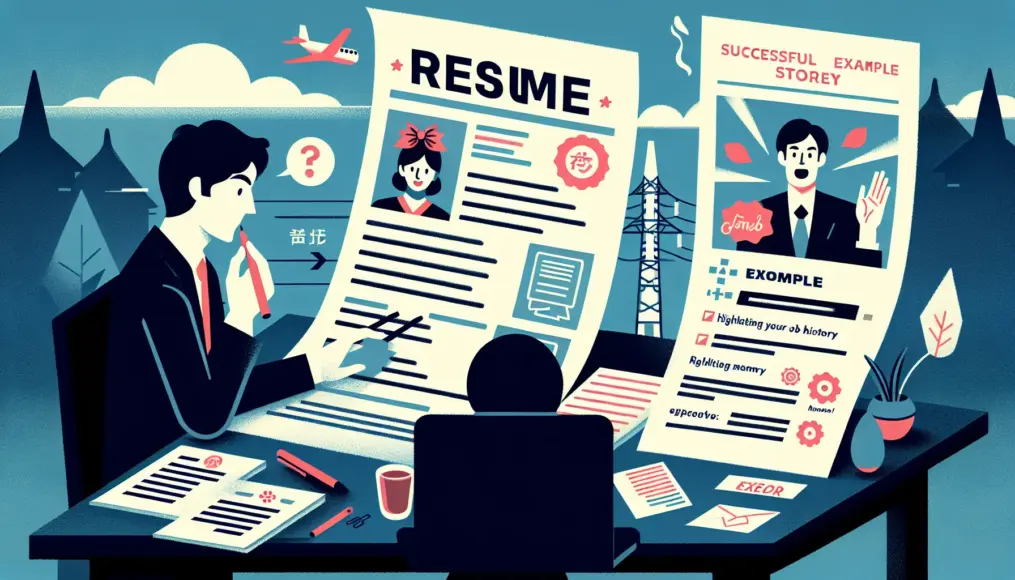When it comes to mid-career job applications, your motivation statement is a crucial element in building your career. The key lies in how effectively you communicate your experiences and skills to potential employers.
In this article, we’ll delve into how to write a compelling motivation statement for mid-career applications and offer tips for acing your interviews.
- Understanding the Basics of Motivation Statements for Mid-Career Applications
- How to Write an Effective Motivation Statement: Tips and Examples
- Communicating Your Motivation in Interviews: Strategies for Success
What to Consider When Crafting Your Motivation for Mid-Career Recruitment
When it comes to mid-career recruitment, your motivation for applying is a critical factor in the selection process.
How you communicate your experiences and skills can significantly influence the outcome of your application.
In this section, we’ll explore the fundamental concepts behind crafting a compelling motivation statement and what companies are looking for.
Fundamental Concepts
Clearly articulating why you want to work for a specific company is essential when applying for mid-career positions.
Employers are interested in understanding how you can contribute to their organization.
To that end, it’s crucial to provide specific examples of your experiences and skills that align with the company’s needs.
Your motivation should not simply express a desire to work; it should also demonstrate how you can contribute to the growth and success of the company.
- Tailor your motivation to align with the company’s needs
- Provide specific examples of your experiences and skills
- Consider how you can contribute to the company
What Companies Look For
There are several key points that companies consider when evaluating motivations for mid-career recruitment.
First, they assess whether your values and vision align with the company culture.
Next, they want to know about your relevant experiences and how you can leverage them effectively.
Additionally, your flexibility in adapting to change and your ability to collaborate within a team are also valued traits.
By keeping these elements in mind while crafting your motivation statement, you can present a more compelling case.
For specific examples related to motivation statements, check out Examples and Tips for Effective Job Change Motivations.
- Verify alignment with company culture and vision
- Show how to leverage your experiences
- Highlight your flexibility and teamwork skills
How to Write an Effective Statement of Purpose
When applying for a mid-career position, your statement of purpose is a crucial opportunity to showcase yourself.
Crafting an effective statement can significantly influence the impression you make during the selection process.
In this section, we’ll discuss the importance of incorporating specific examples and highlight phrases you should avoid.
Using Specific Examples
When writing your statement, it’s beneficial to include concrete anecdotes.
For instance, mentioning a successful experience from your previous job or a project you were particularly passionate about can enhance your credibility.
“I participated in a project to implement a new system at my last job.
As a result, we improved operational efficiency by 20%, which contributed to our team’s overall success.”
By providing specific numbers like this, you make it easier for the company to understand your potential contributions.
- Include specific anecdotes
- Mention successful experiences or project outcomes
- Use numbers to enhance credibility
Phrases to Avoid
There are certain phrases you should steer clear of when crafting your statement.
For example, avoid vague expressions like “I like this company.”
Instead, it’s important to say something like, “I resonate with your company’s commitment to [specific value or mission].”
Additionally, refrain from using negative language or making comparisons with other companies.
Focus on positive wording to clearly convey your enthusiasm and motivation.
To better prepare your statement and make it more specific, consider referring to the guide on Ace Your Interview: Understanding the Intent Behind Questions to Respond Effectively.
- Avoid vague expressions
- Provide specific reasons
- Refrain from negative language
How to Communicate Your Motivation in an Interview
How you express your motivation during an interview can significantly impact the impression you leave on the hiring manager.
Effectively conveying your reasons can help you stand out and make a lasting impression. In this section, we will explore how to incorporate your motivation into your self-introduction and prepare for related questions during the interview.
Incorporating Motivation into Your Self-Introduction
Your self-introduction is a crucial step at the beginning of the interview.
By weaving your motivation into this moment, you make your introduction more specific and memorable.
For example, you might say, “My name is [Your Name]. In my previous job, I was involved in [specific tasks] and successfully achieved [specific outcome]. I hope to leverage that experience to contribute to [Company Name] in [specific area].” This way, naturally integrating your motivation not only makes your introduction smoother but also enhances your credibility.
- Integrate your motivation into your self-introduction
- Share specific experiences
- Explain your motivation in a natural flow
Preparing for Questions
During interviews, it’s common to receive specific questions about your motivation.
Therefore, it’s essential to prepare for anticipated questions in advance.
For instance, be ready to answer questions like, “Why did you choose this company?” or “How do you believe you can contribute?” Having well-thought-out responses for these inquiries will help you feel more confident.
Additionally, researching the company thoroughly and linking it to your own experiences will enable you to provide compelling answers. For more tips on preparation, you might find Essential Preparation Points Before a Job Interview helpful.
- Prepare in advance for interview questions
- Anticipate specific questions and have answers ready
- Research the company and connect it to your experiences
Interview Preparation for Success
To excel in an interview, thorough preparation is essential.
One of the key components of this preparation is utilizing mock interviews and feedback effectively.
In this section, we’ll dive into the importance of mock interviews and how to make the most of feedback.
The Importance of Mock Interviews
Mock interviews serve as a fantastic practice tool for the real thing.
By simulating the actual interview environment, you can convey your motivations while feeling the same level of tension.
It’s a great idea to enlist the help of friends or family to conduct practice interviews with real questions you might face.
Additionally, mock interviews allow you to observe your speaking style and facial expressions, helping you identify areas for improvement.
- Practice with real interview tension
- Ask those around you for help
- Monitor your speaking style and expressions
Leveraging Feedback
After your mock interviews, be sure to seek out feedback.
Listening to the opinions of friends and family can reveal areas for improvement that you might not have noticed on your own.
Specific advice like “this part was great” or “this section needs a bit more work” can be incredibly helpful for your next interview.
Furthermore, by practicing based on feedback, you can build your confidence and approach the real interview with assurance.
- Always ask for feedback
- It’s important to hear specific opinions
- Identify areas for improvement to boost your confidence
If you’re interested in more detailed information on overall interview preparation, be sure to check out the article on The First Step to Success! A Comprehensive Guide to Interview Preparation.
Summary
When it comes to mid-career hiring, your reasons for applying are crucial to your career development.
By crafting a compelling reason for your application and clearly communicating it during interviews, you can leave a strong impression on potential employers.
With thorough preparation and practice, you can confidently present your motivations and stand out in the hiring process.
- It’s important to share specific experiences that support your reasons for applying.
- Conduct mock interviews for practical practice.
- Seek feedback to identify areas for improvement.
Wishing you success in your job search!
We’d love to hear your thoughts or questions about this article!



Comment